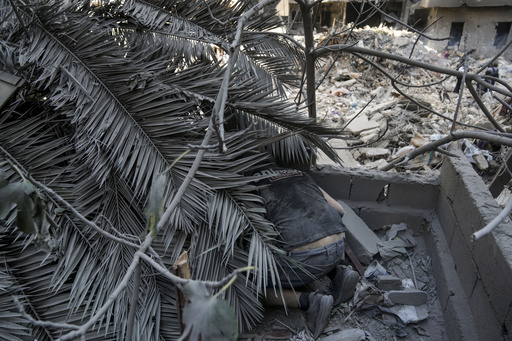BEIRUT — Following an Israeli airstrike that leveled a three-story building in Beirut, resulting in the deaths of at least 10 individuals, local animal rights advocate Maggie Sharawi received a disheartening call from a nearby resident. The caller informed her that the assault had claimed the life of a cat with several kittens.
In a rapid response, Sharawi, along with her colleagues from Animals Lebanon, an organization dedicated to animal welfare, hurried to the scene in the Burj Abi Haidar district. As civil defense crews sifted through the rubble in search of trapped individuals, the animal activists began their mission to locate any surviving kittens. They meticulously navigated through the debris, twisted metal, and fallen walls to rescue the newborn animals, which were subsequently placed in a plastic carrier and transported away while the team continued the search for other distressed cats, whose cries could be heard beneath the wreckage.
Over the past few weeks, Sharawi reported that they had successfully rescued 190 animals from various strike locations across Beirut and its southern suburbs. In some instances, these rescued animals were reunited with their owners, while others found refuge at the organization’s shelter in the capital city. “We believe that caring for animals is an extension of caring for humans. Ultimately, it is the people who turn to us for assistance,” stated Sharawi.
Following the onset of attacks by Lebanon’s Hezbollah against Israeli military targets last October, which prompted a swift retaliatory response from Israel featuring airstrikes and artillery shelling throughout southern Lebanon, animal welfare activists took to the southern regions to aid in rescuing pets left behind in the chaos.
The situation escalated on September 23 when Israel intensified its military actions, displacing hundreds of thousands of residents. Many of these individuals were forced to abandon their pets in southern Lebanon or in the southern suburbs of Beirut. In light of this humanitarian crisis, animal rights activists ramped up their operations despite the perilous conditions, working to save primarily cats and dogs or facilitate their relocation to areas where their owners had sought refuge.
